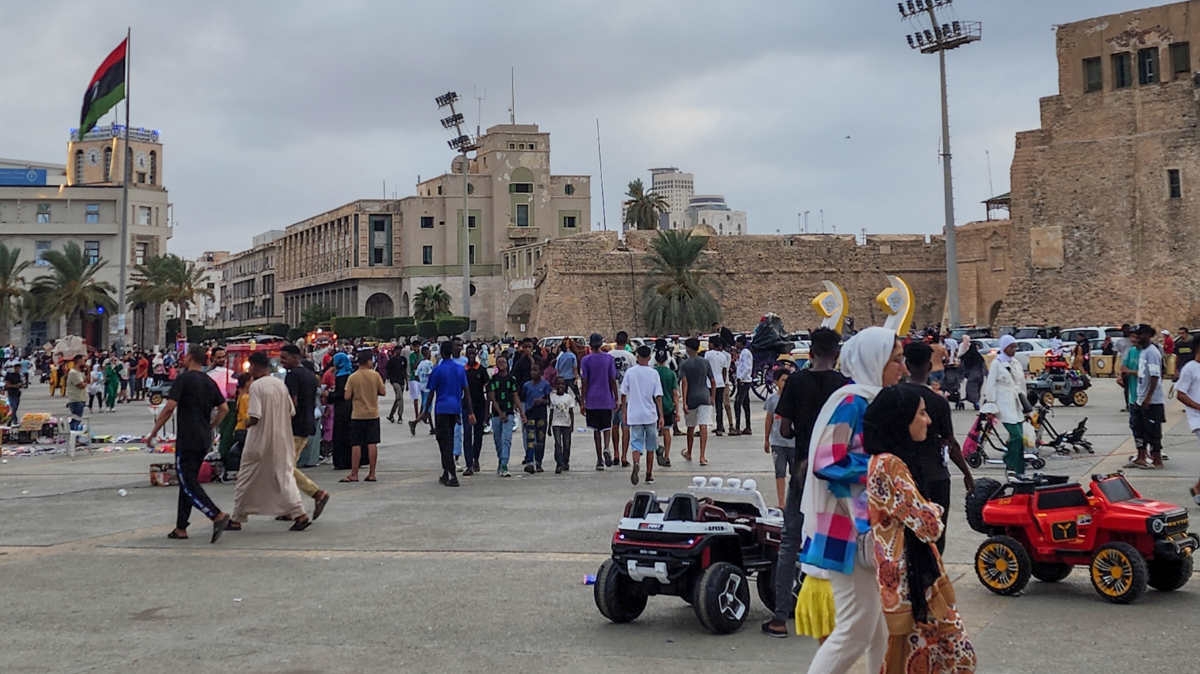US opposes disclosure of Libya-Israel meeting, says it 'kills' normalisation efforts: Report

The United States complained to the Israeli government this weekend about Foreign Minister Eli Cohen's decision to publicly reveal a secret meeting with his Libyan counterpart, Axios reported on Monday, citing Israeli and US officials.
Libyan Foreign Minister Najla al-Mangoush met with Israel's Cohen in Italy last week, despite the two countries not having formal relations. Cohen boasted in a statement about "the great potential for the two countries” to cooperate.
“Libya’s great size and strategic location afford huge importance to contacts with it and huge potential for Israel,” Cohen said.
One US official told Axios that the Biden administration was surprised when Cohen revealed the meeting, saying that Washington's understanding was that it was meant to be kept secret.
Axios reported that US officials spoke to Cohen and other Israeli officials on Sunday, protesting against the Israeli foreign minister's handling of the issue.
New MEE newsletter: Jerusalem Dispatch
Sign up to get the latest insights and analysis on Israel-Palestine, alongside Turkey Unpacked and other MEE newsletters
An aide to Cohen said there was an understanding that the meeting would become public eventually, and decided to put out a statement after his office was asked about the meeting by the Israeli press.
'Kills' Libya-Israel normalisation
The Israeli disclosure prompted widespread protests across Libya and left the Tripoli-based government scrambling to address the unrest. The Libyan foreign ministry issued a statement saying that the interaction did not include "any discussions, agreements or consultations", calling the meeting "an unprepared, casual encounter”.
Libya’s prime minister suspended and later dismissed Mangoush, who reportedly fled to Turkey over fear of her security.
Libya has historically opposed normalising ties with Israel and is supportive of the Palestinian cause. The protests add a new layer of instability to the oil-rich country, which is split between two rival governments.
Prime Minister Abdulhamid al-Dbeibah leads the Tripoli-based western government, which came to power in February 2021 under a UN-backed process with the aim of unifying Libya and preparing the country for elections. Dbeibah has faced growing pressure to step down as Libya’s political elite hamstring the election process.
Eastern Libya is ruled by a government backed by Field Marshal Khalifa Haftar, who leads the Libyan National Army (LNA). Haftar has done his own outreach to Israel. In November 2021, his son and key LNA military commander Saddam Haftar visited Israel.
The backlash on Libyan streets to Cohen’s meeting with Mangoush also provides a rare rebuke to Israel, which has grown accustomed to publicly displaying its ties with Arab states.
Since 2020, Israel has normalised ties with the United Arab Emirates, Bahrain, Morocco and Sudan in a series of deals brokered by the United States. Saudi Arabia is also reported to be considering normalising ties and has publicly taken part in military exercises with Israel.
Egypt and Jordan established diplomatic relations with Israel decades ago. Although public ties are kept at a minimum, meetings between leaders and officials are often announced.
Three US and Israeli officials told Axios that the Biden administration had been working on getting Libya to normalise relations with Israel for two years.
According to reports, the prospect of normalisation was discussed in a meeting between Dbeibah and CIA director William Burns, who visited the country in January. Now with the fallout over the meeting in Libya, those efforts and the efforts to get other Arab countries to normalise with Israel have been harmed, one official told Axios.
"The Biden administration is concerned the exposure of the meeting and the unrest that followed will not only kill efforts to normalize relations between Israel and Libya, but will also harm efforts that are underway with other Arab countries," the official said.
Middle East Eye delivers independent and unrivalled coverage and analysis of the Middle East, North Africa and beyond. To learn more about republishing this content and the associated fees, please fill out this form. More about MEE can be found here.





